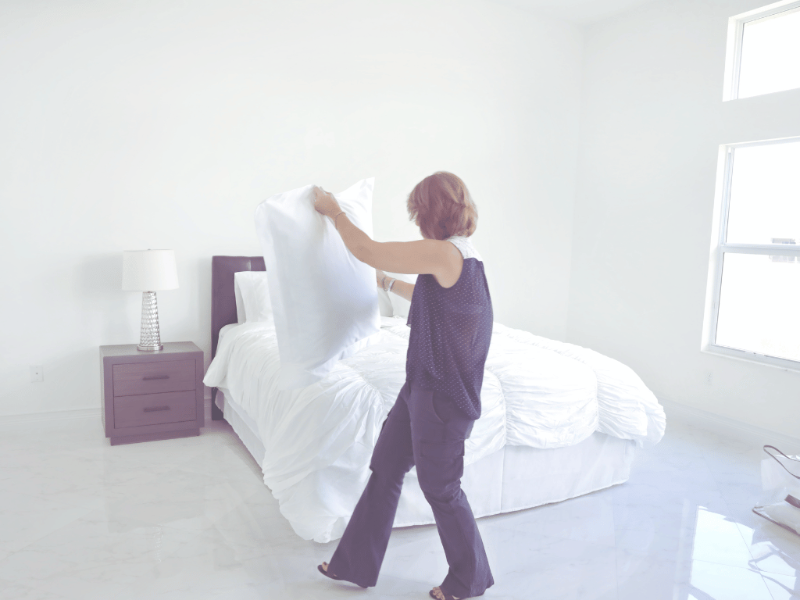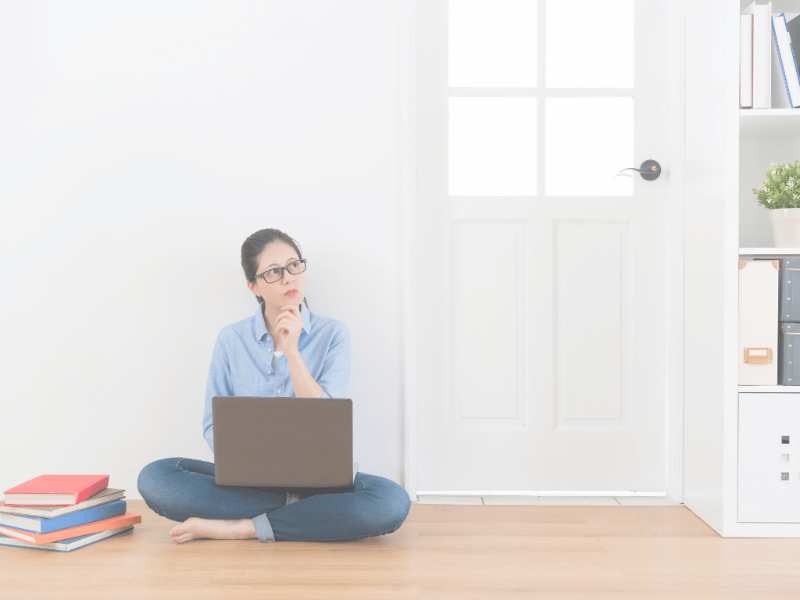
Preparing a house for sale can be a daunting task, but have you ever wondered if staging a house actually works? Well, you're in the right place. In this article, we'll delve into the effectiveness of staging and whether it can make a significant difference in selling your property.
When it comes to selling a house, first impressions matter. Potential buyers often make up their minds within seconds of stepping foot inside a property. That's why staging is crucial—it helps create a positive first impression that can set the stage for a successful sale.
Staging allows you to highlight your home's best features and create a welcoming environment that appeals to a wide range of buyers.
By decluttering, rearranging furniture, and adding tasteful decor, you can transform your house into a space that feels inviting and showcases its full potential.
Research has shown that staged homes tend to sell faster and at higher prices compared to unstaged homes.
According to a study by the National Association of Realtors, 83% of buyers' agents agree that staging makes it easier for buyers to visualise the property as their future home.
This emotional connection can be a powerful motivator that leads to quicker sales.
Staging offers several benefits that can make a significant impact on the selling process.
One of the key advantages is the ability to maximise your home's perceived value. By creating an attractive and well-presented space, you can potentially increase the selling price and attract more interested buyers.
Additionally, staging helps to highlight the unique features and functionality of your property. It allows buyers to see the full potential of the space and envision how they would live in it.
This can be especially beneficial for homes with unconventional layouts or rooms that have multiple potential uses.
Furthermore, staged homes often appear larger and more spacious. By strategically arranging furniture and using clever design techniques, you can create an illusion of space that can be appealing to buyers.
This can be particularly advantageous for smaller homes or properties with limited square footage.
Numerous studies and success stories support the effectiveness of staging in the real estate market. According to the Real Estate Staging Association (RESA), staged homes spend 73% less time on the market compared to unstaged homes.
This statistic alone highlights the impact staging can have on speeding up the selling process.
In addition, RESA reports that staged homes sell for an average of 10% to 20% more than unstaged homes.
This significant price difference can be a compelling reason to invest in staging, especially considering that the cost of staging is typically much lower than the potential return on investment.
Real-life success stories further illustrate the power of staging.
Homeowners have reported receiving multiple offers within days of staging their homes, often resulting in bidding wars that drive up the selling price.
These anecdotes highlight the positive impact staging can have on generating buyer interest and creating a sense of urgency.
To effectively stage a house for sale, it's essential to focus on specific key elements that can make a difference in the overall presentation.
The first step is decluttering. Removing personal items, excess furniture, and unnecessary clutter can make the space feel more spacious and allow potential buyers to envision their own belongings in the house.
Next, consider the furniture arrangement. Aim for an open and inviting layout that allows for easy flow and emphasises the room's best features. Use appropriately sized furniture and consider using neutral colours to create a sense of calm and neutrality that appeals to a wide range of buyers.
Lighting is another crucial element. Ensure that each room is well-lit, both naturally and artificially.
Natural light can make a space feel bright and inviting, while strategically placed lamps and fixtures can create a cosy and welcoming ambience.
Lastly, don't forget about kerb appeal.
The exterior of your home is the first thing potential buyers see, so make sure it looks well-maintained and attractive. Consider adding some potted plants, freshening up the landscaping, and ensuring the entrance is clean and inviting.
Staging doesn't have to break the bank. If you're on a budget, there are still plenty of ways you can effectively stage your home to attract buyers. Here are some DIY staging tips to consider:
Remember, the goal is to create a neutral and welcoming environment that allows potential buyers to imagine themselves living in the space.
With some time and effort, you can achieve this even on a limited budget.
While DIY staging can be effective, sometimes it's best to leave it to the professionals.
Hiring a professional home stager can take the stress out of the process and ensure that your home is presented in the best possible light.
Professional home stagers have a keen eye for design and can expertly showcase your home's unique features.
They know how to create a cohesive and visually appealing look that appeals to potential buyers.
Additionally, they have access to a wide range of furniture and decor options that can elevate the overall staging process.
Furthermore, professional home stagers can provide valuable insight and advice on how to make your home more marketable.
They understand the latest trends and buyer preferences, allowing them to tailor the staging to target the right audience.
While hiring a professional stager does come with a cost, it's important to consider it as an investment.
The potential return on investment in terms of a higher selling price and quicker sale can often outweigh the upfront expense.
While staging can significantly enhance the selling process, there are some common mistakes that sellers should be aware of and avoid. These mistakes can undermine the effectiveness of staging and potentially turn off potential buyers. Here are a few to keep in mind:
By being aware of these common mistakes and taking the necessary steps to avoid them, you can ensure that your staging efforts are successful and impactful.
Staging a house for sale can have a significant impact on the overall selling process.
The enhanced presentation and appeal of a staged home can attract more potential buyers, leading to increased interest and quicker offers.
Furthermore, staging can create a sense of urgency and competition amongst buyers.
When a home is staged to perfection, buyers may feel a strong emotional connection and fear missing out on an opportunity.
This can lead to multiple offers and potentially drive up the selling price.
Staging can also help in overcoming potential buyer objections.
By showcasing the best features and functionality of a property, staging can address any concerns or doubts that buyers may have. It allows buyers to see the true potential of the space and helps them envision how they would live in it.
Ultimately, staging is an effective marketing strategy that can give your property a competitive edge in the market. It maximises your chances of selling quickly and at a higher price, making it a worthwhile investment for sellers.
After exploring the effectiveness of staging a house for sale, it's clear that staging can make a significant difference in the selling process.
The benefits, statistics, and success stories all point to the power of staging in attracting buyers, increasing perceived value, and expediting the sale.
Whether you choose to stage your home yourself or hire a professional, the effort and investment are often well worth it.
Staging allows you to showcase your home's best features, create an emotional connection with potential buyers, and set the stage for a successful sale.
So, if you're considering selling your property, don't underestimate the impact of staging.
Take the time to prepare and present your home in the best possible light. The results may surprise you, and you'll likely find that staging is indeed worth the effort.

Stuart is an expert in Property, Money, Banking & Finance, having worked in retail and investment banking for 10+ years before founding Sunny Avenue. Stuart has spent his career studying finance. He holds qualifications in financial studies, mortgage advice & practice, banking operations, dealing & financial markets, derivatives, securities & investments.





Our website offers information about financial products such as investing, savings, equity release, mortgages, and insurance. None of the information on Sunny Avenue constitutes personal advice. Sunny Avenue does not offer any of these services directly and we only act as a directory service to connect you to the experts. If you require further information to proceed you will need to request advice, for example from the financial advisers listed. If you decide to invest, read the important investment notes provided first, decide how to proceed on your own basis, and remember that investments can go up and down in value, so you could get back less than you put in.
Think carefully before securing debts against your home. A mortgage is a loan secured on your home, which you could lose if you do not keep up your mortgage payments. Check that any mortgage will meet your needs if you want to move or sell your home or you want your family to inherit it. If you are in any doubt, seek independent advice.